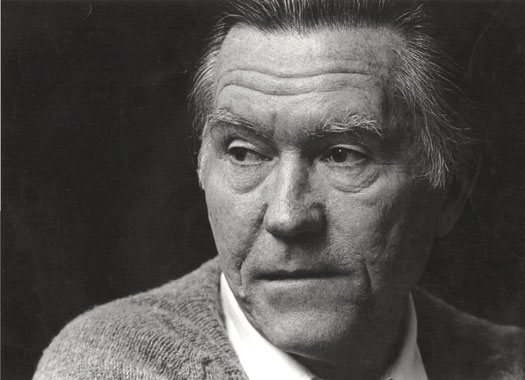
It has been awhile since I posted a WIlliam Stafford poem. Coincindentally, if there is such a thing, I just found out that William’s 100th birthday would have been on January 17, and friends here in Oregon have been hosting events in his honor. For more info go here: http://stafford100.org/.
Or, you might enjoy reading one of his poems. I’m sending this poem out to all of the bloggers at http://shoe1000.wordpress.com/.
A story that could be true
If you were exchanged in the cradle and
your real mother died
without ever telling the story
then no one knows your name,
and somewhere in the world
your father is lost and needs you
but you are far away.
He can never find
how true you are, how ready.
When the great wind comes
and the robberies of the rain
you stand on the corner shivering.
The people who go by—
you wonder at their calm.
They miss the whisper that runs
any day in your mind,
“Who are you really, wanderer?”—
and the answer you have to give
no matter how dark and cold
the world around you is:
“Maybe I’m a king.”

Thanks – one of my favorite poems by one of my favorite poets!
LikeLike
Glad to hear Morgan! 🙂
LikeLike
Aaaaah!
LikeLike
🙂
LikeLike
Aren’t we all wanderers? Thought-provoking poem; my thanks…
LikeLike
You’re very welcome Theresa! 🙂
LikeLike
Thanks for sharing. He seems to have been an interesting person, and a latecomer to writing poetry (he started at 48).
I like that poem.
It’s particularly poignant since I’ve sometimes felt I was born into the wrong family.
I like that last part:
“no matter how dark and cold the world is around you:
“maybe I am a king”
of course, in my case, a queen, but still…
LikeLike
Hi Casey,
So glad you enjoyed the poem.
Yes, ditto for me, when I first heard this poem read aloud by Michael Meade, I was thrilled by the idea that, “maybe I am a king,” or a queen.
It’s very freeing for me to know that we are all so much more than who we are within our families.
LikeLike
You might like this, too….
it’s not exactly related to this blog post, but I still wanted you to know about it.
I don’t know if you follow Monica Cassani’s WP blog, Beyond Meds, but I found the above link through her blog.
I thought it was interesting and thought you might like to read it, too.
particularly this part:
“The child is so much a part of the psychological atmosphere of the parents,” Jung writes, “that secret and unsolved problems between them can influence its health profoundly. The participation mystique … causes the child to feel the conflicts of the parents and to suffer from them as if they were its own. It is hardly ever the open conflict or the manifest difficulty that has such a poisonous effect, but almost always parental problems that have been kept hidden or allowed to become unconscious.”
LikeLike
Yes, I do follow her blog, but thank you for the link.
I really love the Jung quote too!
As a child, and even now, I feel hyper-sensitive to what I think I am intuiting about others feelings. One thing I remind myself of though, is that they are not my feelings and I may even be wrong about what I am intuiting.
A huge part of therapy for me revolves around differentiating feelings and taking them deeper into what they mean to me and what they are trying to ell me.
When I realized that my mother used her own guilt over things she had done in her past to see me as “messed up,” it helped me to let her know that I was no longer willing to agree with her, colluding with her need to feel guilty.
It took a few years for me to feel unstuck to her needs for me to be a certain way, but it is very freeing, although sad to see her still needing her guilt. She perhaps will always be angry, and guilt-ridden, but I know that those are her feelings, not mine.
LikeLike
Beautiful Debra
LikeLike
Thank you David. We could all use a little Stafford from time to time. 🙂
LikeLike
Beautiful, Debra.
LikeLike
Thanks Don!
LikeLike
Thanks for posting this !
LikeLike
You’re welcome! I’m glad you liked it.
LikeLike